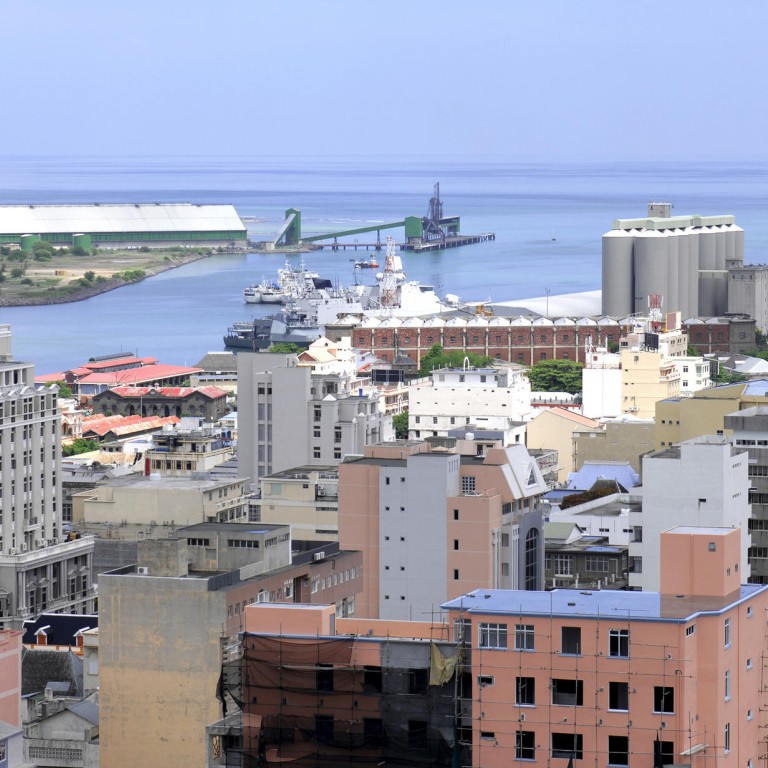
Passport to investment
Indian Ocean island slow to register on China's radar, writes Peta Tomlinson
Mauritius, a 1,865-square-kilometre coral reef-fringed island in the Indian Ocean, is openly wooing foreigners - not just urging them to come and visit, but to buy property.
According to reports, this small but economically resilient African state is on the cusp of a construction boom. Under way or in the planning are several major resort developments, offering more than the island's usual tourist attractions of a tropical climate, spectacular scenery, multicultural experiences and myriad outdoor pursuits. Foreigners who spend more than US$500,000 in an approved Integrated Resort Scheme (IRS) are eligible for permanent resident status for themselves and their dependent family.
Foreigners can also buy in Mauritius under the Invest Hotel Scheme (IHS) introduced in 2009, where the buyer has the right to use a hotel room for 45 nights a year, but does not gain residency; and the Real Estate Scheme (RES), introduced in 2007, allowing small landowners to develop their land by building residences, commercial and leisure facilities for sale mainly to non-citizens.
Jonathan Tagg, director for Pam Golding Properties in Mauritius, says demand has been growing steadily since 2004, when foreigners were first given permission to buy. This includes a "gradual increase" from Chinese investors, who number 50,000 among the 1.3 million population.
Tagg says the lifestyle is attracting them. "Mauritius is a beautiful and safe island environment and is one of the top island tourism destinations in the world. Flights are regular, the cost of living is reasonable, and it is friendly to tourists. Permanent residence when they buy is an added bonus." Tagg expects that with land and permit shortages, demand for quality developments on grade A sites will keep exceeding supply.
Rhoy Ramlackhan, managing director of Broll Indian Ocean, a property services provider, believes that the permanent residency status "has increasingly become a key factor for investing on the island as it provides a safe haven where people can retreat to". "While some countries in Africa have safety issues, the other main source regions of tourism - in Europe - impose many financial and tax pressures on their residents, reasons why most of our residential buyers are from these markets," he says.
Not yet from Asia, though. Ramlackhan says that although the frequency of flights from the east is increasing, "it will take a few more years before serious residential acquisition interest starts emerging from this part of the world. Whereas most of the elite from Europe and Africa are frequent visitors to Mauritius, the island is still pictured as being similar to mainland Africa to Asian travellers. However, through increased marketing of the island that the government and private operators are planning in Asia, serious residential acquisition interest is expected in the coming years."
Murray Adair, CEO of the Indian Ocean Real Estate Company (IOREC), is testing the market with his new development, Azuri, a luxury, ocean-front "lifestyle village" on the eastern coast, due for completion by the end of this year. Azuri is IRS-approved, and its pricing structure, from US$500,000 to US$850,000, compares favourably with the average price for an IRS unit in Mauritius, which he says is US$1.6 million.
IOREC operates two Centara hotels in Mauritius, where a growing number of Chinese guests now constitute the third highest nationality after French and British. On the back of that tourism interest, the company began marketing Azuri in the mainland last year via a wealth management agency in Shanghai and a property expo in Beijing. Adair concedes that "the feedback has been limited". He says: "To date we have one buyer from Hong Kong - a South African expat. At present, demand from these markets is limited partly due to a low awareness of Mauritius as a destination and an investment opportunity, but also due to poor flight connectivity." That latter is changing, he says. "Air Mauritius set up two weekly direct flights to Shanghai this year and is starting bi-weekly direct flights to Beijing this month."
Tagg's advice to foreign investors is to buy close to towns, avoiding the more remote locations far from infrastructure and support facilities such as medical, schools and shops. "Also, ensure the development company has a track record. The location is critical - ideally with sea views or proximity to the beach - as is price."
For buyers attracted to IRS properties, Ramlackhan recommends Azuri, "given the beachfront location and low entry pricing". For IHS, he recommends buying in Long Beach (US$325,000) or Lux Villas Belle Mare (US$960,000); and for RES, One Ocean Resorts, a new boutique prime residential resort with all facilities (US$900,000).
But if residency is the key driver, investment adviser Scott Picken, CEO of International Property Solutions, says: "In 15 years of personal property investment and assisting clients to invest internationally, I have not seen one opportunity where you get a passport that also makes sense as an investment. Nothing in life is free."
Describing Mauritius as "a very unsophisticated market", he worries that there is insufficient research to support yield claims, and that occupancy relies so heavily on tourism. He also notes that, once a foreigner sells their IRS property, their residency status is rescinded.
As for the island's IRS offering, Picken says: "As a holiday home it is fine, but if you are looking to make an investment, then I believe it is a very weak investment. The fundamentals are wrong and it is not sustainable."
Buying Guide
A room at the new luxury east coast hotel, Long Beach. As an IHS property, owners may occupy for a maximum 45 nights per year, and put it in the rental pool for the remainder.
A top-of-the-range, three- or four-bedroom apartment in the new, IRS-approved luxury beachfront village, Azuri, on the northeast coast, 25km from the capital, Port Louis. Integrated facilities include a five-star hotel and spa, boat club, shops and restaurants.

